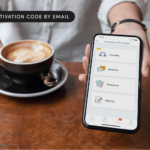to ask for help
While we often go about life on autopilot, sometimes it’s worth taking time to stop and evaluate. Where do you want to be in five years? Do you want to change careers or develop your small business plan? All of these questions and more are reasons why it’s important to create a plan for personal development.
Why do you need a plan for personal development?
If you’ve ever tried to write a paper in college without a plan, you might remember how hectic it was. Nothing is more chaotic than trying to explain your point without having a clear idea first. In fact, I sat down and created a plan before I wrote this article! The same goes for your life. Having a personal development plan helps you figure out what you want in life and how to get there. It gives you measured, specific steps to reach your goals.
What are the benefits of having a plan for personal development?
A personal development plan gives you a better sense of control over your own life. You essential create a plan to invest in yourself. However, don’t confuse them with your professional development goals. Think of your personal development goals as a map to your life. If you ever feel lost, you can consult them to figure out where to go next. Best of all though, you can always change your map to fit your needs as your life changes. A plan for personal development lets you be in control of your life.
Steps to develop a plan for personal development
So how exactly do you create a personal development plan? Let’s dig in and look at the steps to create yours!
1. Set SMART Goals
First, you need to decide what your goals are in order to create your plan for personal development. If you imagined your life in five years, what would it look like? What’s the most important thing to you? Are you career-driven or do you want to focus on something other than your career? There’s no wrong or right answer here. Define what are the most important things to you. These are your goals, or what you want to accomplish in your life.
Then, take it a step further and set goals that are SMART, which is short for Specific, Measurable, Achievable, Relevant, and Time-bound. The more realistic your goals are, the more attainable they become.
2. Prioritize
Once you have your goals figured out, you need to prioritize. Which ones do you want to work on first? Figuring out which big goals you want to reach first will help you set smaller goals around your big goals. For example, if your goal is to go to grad school in a foreign country in the next year or two, you can break down your goals from there.
You would need to research which schools to go to, which programs you are interested in, as well as how to get a visa and how much it will cost. Or if you really want to change careers and become a teacher. You would need to take a teaching course, which would mean looking up courses in your area, applying, figuring out funding, and applying for scholarships.
3. Set deadlines
When do you want to accomplish your first goal? Having a timeline in place helps you figure out how much time you need or have to accomplish your goals. It also helps make your goals realistic and makes you more likely to work towards them. You’ll hit pitfalls along the way, so having realistic deadlines can help encourage you when things get tough or life takes a turn you weren’t expecting.
4. Identify your strengths and weaknesses
What strengths will help you reach your goal? Which weaknesses do you need to be aware of that could hold you back? Take some time to sit down and make a list. Think about what you have now that will help you reach your goal. It can be anything from your network to a skill you learned at your job.
Do the same thing with your weaknesses. What do you still need to learn to reach your goal? Is there an area you can improve in? Write down what you need to do to strengthen those weaknesses, whether it’s improving your resume or getting a certificate in the field you want to work in. Doing this is an integral part of your plan for personal development.
5. Develop the skills needed to reach your goals
Do you have the skills needed to reach your goals? This is the part of the plan where you develop yourself. Focus on what you need, whether it’s finally getting out of credit card debt, curbing your overspending, or staying motivated.
Are there things that you need to stop doing? Maybe you’re holding yourself to too high of a standard. Take time to recognize how far you’ve come. It might seem like you have a long way to go, but trust me, if you reflect back on everything you’ve accomplished, you’ll be amazed!
6. Ask for support
Need some help figuring out how to apply for a test or unsure how to make a budget? Take advantage of your network. Those can include friends and family, colleagues, or even financial advisors. Basically, you don’t have to do everything on your own.
Need some time to work on your Ph.D. application? Ask your partner to watch the kids or take care of dinner. Don’t be afraid to ask for help. Chances are those around you will be more than happy to help, especially if they know your ultimate goal.
7. Measure your progress
The best way to stay motivated is to see how much you’ve accomplished with your plan for personal development. Find a way to keep track of your progress. That can mean having a checklist or a digital planner. Or reward yourself every time you accomplish one thing toward your goal.
Measuring your progress also gives you time to reevaluate your plan for personal development. Is there something you should be doing differently? Have your priorities changed? Review what needs to be done over the next quarter and keep holding yourself accountable.
A personal development plan example
Below is a personal development plan example template to help you as your craft your own plan.
| Goal | Action steps | Resources/Supported needed | Target Date |
| Determine what you want to accomplish specifically. Listed out in order of priority. | Lay out step by step, what needs to be done to help you achieve your goal. | Consider your strengths and weakness and lay out what resources and support you to help you with accomplishing your goal. | Set a specific date by when you plan to accomplish your goal. |
Create your plan for personal development today
Developing a plan for personal development is a sure way to stay focused on your goals and intentional with your life. Figure out what you want to accomplish, measure how manageable and realistic steps to get there and figure out what you can do to improve yourself. And don’t forget to ask those around you for help. By breaking down your goal into smaller steps, you’ll reach your goals in no time.











